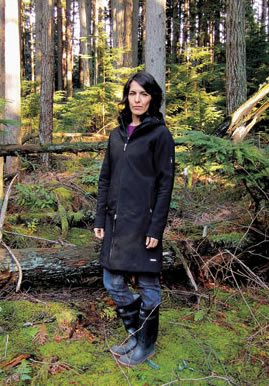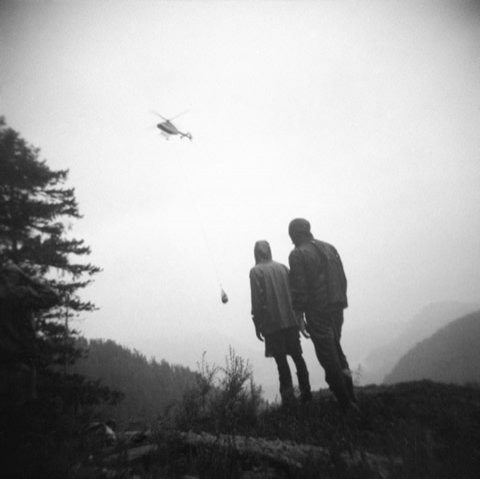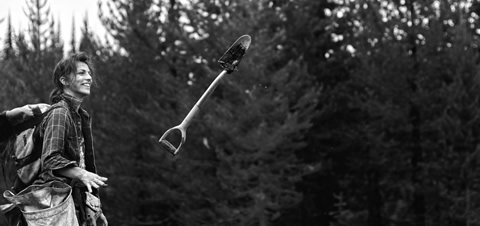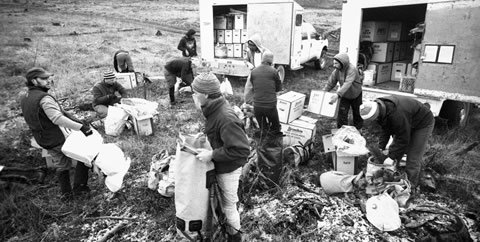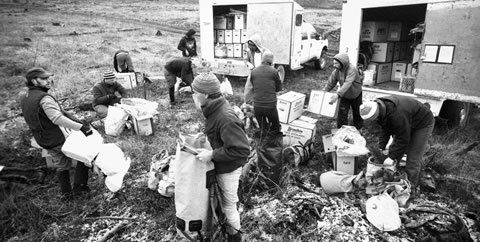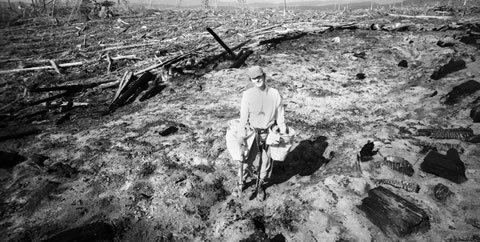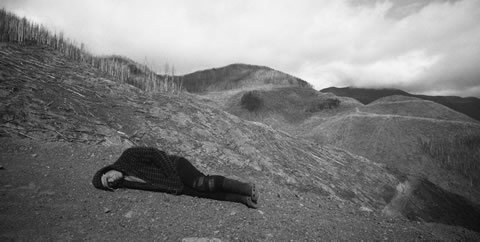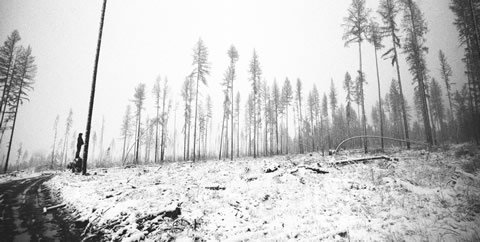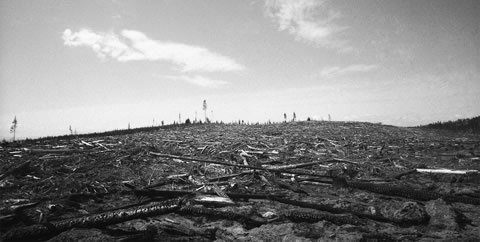For years, writer Charlotte Gill (BA 1996 Innis) worked as a tree planter in the forests of Canada. Her latest book, Eating Dirt, is a memoir of that time. Below is an adaptation, which begins with details about one day in the lives of planters who, like Gill, make a full-time living in the reforestation business.
Our trucks climb the nameless mountains the way airplanes ascend, nosing up at the sky. We switch up and back along steep, cobbled surfaces – flattened shards of white rock chiselled from the slope. Before long, we find ourselves in the middle of a clearcut.
We tumble out of our trucks like clothes from a dryer. Fog clings to the warp and weft of our tatters, the fine hairs on our cheekbones. We slide our feet down into tall leather boots with spiked soles. Loggers’ boots, made for walking on bark and slick logs. We slip our hands into heavy-duty gloves. We’re tree planters, gearing up for the daily grind. We chortle darkly, rubbing our palms together. There is nowhere to hide from the cold. A box of seedlings is ripped open. A paper bag torn. Bundles of plastic-wrapped seedlings tumble out. The stems are as long as a forearm, the roots grown in Styrofoam tubules to fit in the palms of our hands. Tree planters: little trees plus human beings, two nouns that don’t seem to want to come apart.
We throw down our tree-planting bags and kneel next to them and cram them with trees. Then we abandon the scene, an explosion of brown paper and Saran Wrap snaking around on the road. We stomp out in every direction, right and left, up and down the mountain. An inaudible gun goes off over our heads, and the day begins. Somewhere behind the clouds the sun is our pace clock in the sky.
I’m not too bad at planting trees, if only because of the practice. I have climbed the flanks of a hundred mountains and hoisted my limbs over countless logs and stumps. I’ve stuck a million seedlings in the ground. I don’t mind reading bush maps or flying around in helicopters or driving big pickup trucks. I hardly ever get cold in the rain. But I am not a natural tree planter. I have the hands of a typist. Being filthy and clammy makes me hate myself. And most of all I’d rather plant a pretty tree than a fast one. Which is one thing a tree planter should never do if she intends to earn a living.
Planting trees isn’t hard. As any veteran will tell you, it isn’t the act of sowing itself but the ambient complications. It comes with snow pellets. Or clouds of biting insects so thick and furious it is possible to end a day with your eyelids swollen shut and blood trickling from your ears. There are swaying fields of venomous plants like devil’s club and stinging nettle. There are sunburns and hornets. There are leeches and ticks, bears and cougars. There are infections and chafe and boils and trench foot. It’s possible to be so cold you feel dreamily warm and so hot you fall into shivers. Over time the work has the bodily effect of a car crash in extreme slow motion. Besides that, the task itself is thankless and boring, which is to say it is plain and silent. It is also one of the dirtiest jobs left in the modern world.
What could compel a person to make a career of such a thing? Some people think planting trees is as boring and crazy-making as stuffing envelopes or climbing a StairMaster. I love my job for exactly the opposite reason, because it is so full of things. There are so many living creatures to touch and smell and look at in the field that it’s often a little intoxicating. A setting so full of all-enveloping sensations that it just sweeps you up and spirits you away, like Vegas does to gamblers or Mount Everest to climbers. It has a way of filling up a life with verbs that push into one another, with no idle space in between. So that you just can’t believe all the things you saw or all the living beings that brushed past your skin.
Eating Dirt is published by Greystone Books in association with the David Suzuki Foundation.
For a look at the life of a tree planter, check out these photos by Marlin Olynyk. Olynyk was a professional tree planter for 10 years, and is now a full-time photographer. He took these images in remote camps in the British Columbia interior between 2008 and 2010.
**Please click on the image to start the slideshow.


